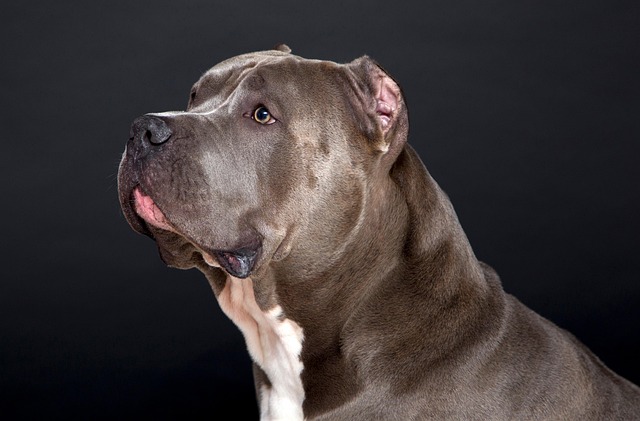
What is the best thing for dogs to chew on to clean teeth
If you’ve ever wrestled with a squirming pup to brush their teeth—only to end up with slobber on your shirt and a toothbrush chewed to bits
When it comes to dog health, sterilization has always been a hot topic. Spaying an older dog may seem simple, but there are many factors behind it that require careful consideration, especially the possible side effects of sterilization, which always concern us as owners.
For older dogs, their physical functions are no longer as good as before. When considering sterilization, the risk of surgery is the first issue that needs to be faced. With age, the dog's cardiopulmonary function gradually declines, and its tolerance to anesthesia also decreases. During anesthesia, older dogs may face risks such as respiratory depression and abnormal heartbeat, which are likely to be life-threatening once they occur. Every time an older dog is sent to the operating room, the owner seems to be experiencing a heart-wrenching wait, fearing that any accident on the operating table will ruthlessly take away the time spent with the dog. During the operation, due to the weak physical recovery ability of older dogs, wound healing is relatively slow. The chance of postoperative infection is higher than that of young dogs. Once an infection occurs, it will not only make the dog suffer more pain, but may also cause a series of complications, further affecting the dog's health.
In addition to surgical risks, sterilization will also affect the endocrine system of elderly dogs. The reproductive organs of dogs play an important role in their endocrine balance. Sterilization surgery removes the ovaries and uterus, which will cause a sharp change in hormone levels in the body. The sudden decrease in estrogen may cause osteoporosis in elderly dogs. They are already inconvenient to move, and their bones become more fragile, prone to accidents such as fractures. Imagine that our beloved dogs may be injured in daily activities if they are not careful because of osteoporosis. How can this not make people worry. In addition, changes in hormone levels may also affect the dog's metabolism. Many elderly dogs will gain weight after sterilization. Metabolism slows down and the body consumes less energy, but the dog's appetite may not decrease at the same time. Excessive weight gain will bring additional burdens to the dog's joints, heart and other organs, forming a vicious circle.
 From a psychological perspective, elderly dogs have formed relatively stable behavior patterns and personality traits in their long-term lives. After sterilization, physical changes may make them feel uncomfortable, which in turn affects their emotions. Some elderly dogs may become more withdrawn. They used to like to interact with people and be intimate with their owners, but after sterilization, they may hide in a corner and lose interest in everything around them. However, we cannot ignore the benefits of sterilizing elderly dogs. Sterilization can effectively reduce the risk of elderly dogs suffering from reproductive system-related diseases, such as uterine pyometra, ovarian cysts, and breast tumors. These diseases are often fatal threats to elderly dogs. From this perspective, sterilization has built a line of defense for the health of elderly dogs to a certain extent. But this does not mean that we can ignore the side effects of sterilization, but we need to weigh the pros and cons more carefully.
From a psychological perspective, elderly dogs have formed relatively stable behavior patterns and personality traits in their long-term lives. After sterilization, physical changes may make them feel uncomfortable, which in turn affects their emotions. Some elderly dogs may become more withdrawn. They used to like to interact with people and be intimate with their owners, but after sterilization, they may hide in a corner and lose interest in everything around them. However, we cannot ignore the benefits of sterilizing elderly dogs. Sterilization can effectively reduce the risk of elderly dogs suffering from reproductive system-related diseases, such as uterine pyometra, ovarian cysts, and breast tumors. These diseases are often fatal threats to elderly dogs. From this perspective, sterilization has built a line of defense for the health of elderly dogs to a certain extent. But this does not mean that we can ignore the side effects of sterilization, but we need to weigh the pros and cons more carefully.
When deciding whether to sterilize an elderly dog, in-depth communication with a veterinarian is crucial. The veterinarian can assess the dog's health through a comprehensive physical examination and give professional advice. The owner also needs to fully understand the pros and cons of sterilization, considering the dog's quality of life, physical condition, and his or her own tolerance. If you decide to sterilize an elderly dog, we need to devote a lot of energy to postoperative care. Pay close attention to the recovery of the dog's wounds, give appropriate nutritional supplements according to the guidance of the veterinarian, and help the dog go through the physical and psychological adjustment period.
Sterilizing an elderly dog is a challenging and tangled decision. Every side effect is like a boulder hanging in our hearts, which makes us breathless. But for the health of the dog, we have to face it. I hope that every owner can fully consider various factors when making a decision and choose the most suitable path for the elderly dog's future. Because they are not only pets, but also family members who have been with us for many years and given us countless warmth and joy. They deserve our full love and care.

If you’ve ever wrestled with a squirming pup to brush their teeth—only to end up with slobber on your shirt and a toothbrush chewed to bits

That faint whiff of fishy breath when your Golden Retriever greets you isn't just "dog smell" – it's likely the first clue to canine periodontal disease

Ever felt that sinking worry when your energetic Labrador suddenly loses its appetite or starts a persistent belly rumble?Regular deworming isn't just a checkbox on a pet care list—it's a vital shield protecting your furry best friend from hidden health t

Watching your dog pant heavily on a hot day, or noticing their nose is dry and their eyes look sunken, can send a wave of panic through any new pet owner.

Cooking homemade meals for your dog feels like an act of love—chopping fresh veggies, simmering lean meat, knowing exactly what’s in their bowl.

Picture this: You're scrambling to get ready for work, your golden retriever nudges your hand, and your daily multivitamin tumbles onto the kitchen floor.